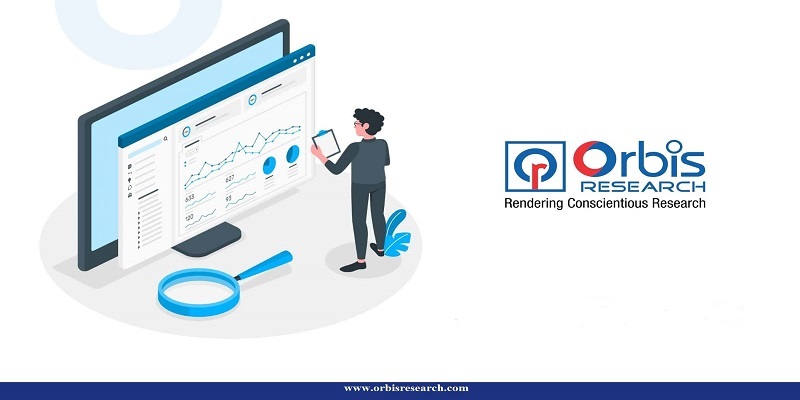
Press Release, Orbis Research An Examination of COVID-19’s Impact on the World Fine Art Insurance Market
There was a significant influence of the COVID-19 epidemic on the global Fine Art Insurance Market. The report provides a comprehensive examination of how the pandemic changed consumer demand, disrupted supply chains, and impacted the activities of major market participants. Many industries saw a slowdown in the early phases of the pandemic as a result of lockdown procedures, lower production, and logistical difficulties. There were transitory drops in market value in the Fine Art Insurance market as well, as many businesses had to adjust to the new normal.
Request a sample report @ https://www.orbisresearch.com/contacts/request-sample/6798278
The pandemic did, however, also bring about a few unanticipated chances for expansion. Demand for Fine Art Insurance market categories, particularly those associated with digital transformation, increased as the world moved toward remote work and online services. The need for creative Fine Art Insurance solutions to satisfy the new digital requirements grew as industries like e-commerce, telemedicine, and online education quickly increased.
Fine Art Insurance market Segmentation by Type:
Property Insurance
Title Insurance
Fine Art Insurance market Segmentation by Application:
Private
Commercial
Direct Purchase the report @ https://www.orbisresearch.com/contact/purchase-single-user/6798278
The research offers insights into how major market participants addressed the difficulties presented by the epidemic. Companies were able to lessen the negative effects of COVID-19 by immediately adapting by establishing flexible production processes and diversifying their product offerings. Furthermore, government programs like stimulus packages and tax breaks that were designed to aid firms during the epidemic contributed to market stabilization.
Key Players in the Fine Art Insurance market:
CPIC
AXA
Allianz
Progressive
Ping An
Chubb
Aon plc
AIG
Zurich Insurance Group
A greater demand for goods and services associated with Fine Art Insurances has resulted from the pandemic’s acceleration of technology adoption across several businesses. Since businesses keep spending money on remote solutions and digital infrastructure, this change is anticipated to have a long-term impact on the market. Ultimately, even though the COVID-19 epidemic severely disrupted the global “Fine Art Insurance Market,” it also created new development opportunities, especially in industries where the digital revolution is driving change.
Do You Have Any Query Or Specific Requirement? Ask to Our Industry Expert @ https://www.orbisresearch.com/contacts/enquiry-before-buying/6798278
A PESTL Study of the World Fine Art Insurance market
A thorough summary of the macroenvironmental elements influencing the market is given by the PESTL (Political, Economic, Social, Technological, and Legal) analysis that is part of the Global Fine Art Insurance market Report.
About Us
1. Political Factors: The market for Fine Art Insurances is greatly influenced by the state of politics. The development of a market can be significantly impacted by import/export taxes, production standards, trade agreements, and environmental sustainability policies of the government. As political upheaval or changes in government policy can generate risks for market actors, the report emphasizes how political stability in important regions supports a positive business environment.
2. Economic Factors: Demand and profitability in the market are directly impacted by regional and global economic situations. Future trends are predicted by analyzing variables like inflation, GDP growth rates, and exchange rates. According to the report, the Fine Art Insurance market would have significant growth because of the fast industrialization and increase in consumer expenditure of developing economies. On the other hand, market expansion may be adversely affected by recessions or downturns in significant economies.
3. Social Factors: Two important components of the social study are consumer behaviour and demographic trends. The research centres on how the market is being influenced by evolving lifestyles, rising health consciousness, and increased demand for sustainable products. The need for more inventive and sustainable Fine Art Insurance solutions is also being driven by social issues, such as growing environmental consciousness and computer literacy.
4. Technological Factors: Technological advancements have a significant influence on the Fine Art Insurance market. The study goes over how innovations in automation, artificial intelligence, the Internet of Things, and other cutting-edge technologies are propelling productivity and creativity in the sector. To stay competitive in the market, businesses that spend in R&D to develop new, high-performance products are likely to succeed.
5. Legal Factors: Laws and regulatory frameworks have a significant impact on how the Fine Art Insurance market is shaped. Information on regional and international legal requirements, including labour laws, product safety standards, and environmental restrictions, is provided by the study. Market participants must abide by these rules to protect their reputations and stay out of legal hot water.
Contact Us:
Hector Costello
Senior Manager – Client Engagements
4144N Central Expressway,
Suite 600, Dallas,
Phone: +1 (972)-591-8191,
Email: sales@orbisresearch.com